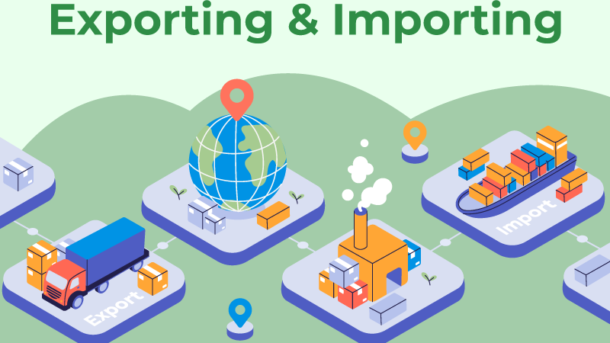In the dynamic landscape of international trade, understanding the intricacies of importing and exporting is crucial for businesses looking to expand their global footprint.
This comprehensive guide provides an overview of the essential aspects of both processes, including documentation requirements, taxes, and the role of customs clearing agents.
Exporting: A Closer Look
Definition of Exportation
Exportation, as defined by the East Africa Community Customs Management Act of 2004 (EACCMA 2004), involves taking or causing goods to be taken out of the Partner State.
Requirements for Exporting
- Clearing Agent:
- Exporters need to engage the services of a licensed customs clearing agent to process exportation documents and clear goods.
- Export Levy:
- Certain items may attract an export levy as outlined in the First Schedule of the Miscellaneous Fees and Levies Act of 2016.
Documents Required for Export Clearance
To clear exported goods, a licensed customs clearing agent requires essential documents, including:
- Valid Commercial Invoice
- Certificate of Origin
- Permit/License for restricted goods
- Personal or Taxpayer Identification Number (PIN certificate)
- Purchase Orders/Contracts
- Packing List
Goods Clearance Process
- Entry Declaration and Processing:
- The appointed clearing agent makes a customs declaration in accordance with EACCMA 2004.
- Stuffing, Verification, and Release:
- The agent presents the entry and supporting documents for stuffing/verification.
- Exit:
- Compliant declarations are cleared, and a certificate of export is issued upon exit through the border or port.
Importing: An In-Depth Overview
Definition of Importation
Importation involves bringing or causing goods to be brought into the Partner States from a foreign country, as per the provisions of Sec.34 of EACCMA 2004.
Requirements for Importing
- Clearing Agent:
- Importers need a licensed customs clearing agent to process importation documents and clear goods.
- Duties and Taxes Payable:
- Import duties, excise duties, Value Added Tax (VAT), Import Declaration Fees (IDF), and Railway Development Levy (RDL) are payable, depending on the item and duty rates.
Documents Required for Import Clearance
To clear imported goods, documents needed include:
- Certificate of Conformity (CoC)
- Bill of Lading/Airway Bill
- Certificate of Origin
- Valid Commercial Invoice
- Personal or Taxpayer Identification Number (PIN certificate)
- Purchase Orders/Contracts
- Packing List
Goods Clearance Process
- IDF Lodgement & Processing:
- The importer engages a licensed clearing agent to lodge an import declaration form, followed by pre-shipment inspection.
- Entry Declaration, Payment of Taxes, and Processing:
- The clearing agent makes a customs declaration, and the importer pays taxes. Customs process compliant declarations.
- Verification and Other Enforcement Measures:
- Physical verification is conducted where the goods are domiciled.
- Clearance and Release:
- Compliant declarations are cleared and released.
Customs Bonds: Understanding the Terminology
- Bond:
- An undertaking in legal form where a person commits to specified acts, guaranteeing payment of a specified amount if conditions are not satisfied.
- Bank Guarantee:
- A requirement for payment under dispute, with the principal executing a bond instead of paying in cash.
- Bond Reinstatement:
- Reinstatement due to successful accounting of transactions covered by the bond.
- Bond Suspension:
- Suspension due to failure to account for transactions covered by the bond.
- Surety/Guarantor:
- The entity undertaking to pay the bond if the principal fails to fulfill conditions.
- Custom Security Bond:
- A contract executed under seal, obligating payment of a specified sum if bond conditions are not satisfied.
- Principal:
- The party undertaking to fulfill bond conditions and pay penalties, typically the importer or their agent.
Conclusion
As businesses engage in international trade, a comprehensive understanding of the export and import processes, coupled with knowledge of customs bonds, is indispensable. By adhering to these guidelines and working closely with customs clearing agents, businesses can navigate the complexities of global trade successfully.




